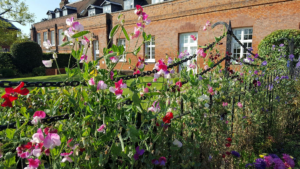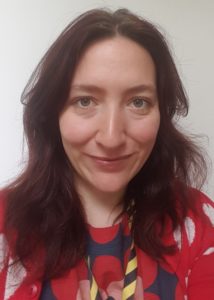My review of ‘Life after the PhD’ conference at Cumberland Lodge 2017 by Betsy Lewis Holmes
I had little idea what to expect of this conference. I was concerned that it would not be relevant for me, would be a low standard and not suitable for PhD students, mature students or those with previous work experience (I fit in all these categories). I was very pleasantly surprised with my experience, and recommend a visit to Cumberland Lodge for students of all disciplines. It is particularly recommended if you are interested in interdisciplinary working and collaboration.
I arrived at the historic and beautiful Cumberland Lodge on Tuesday afternoon, having driven through Windsor Park. We stayed for three nights and I was lucky enough to have a room to myself. The Lodge has excellent facilities, much like an Oxbridge college, and it was a pleasure to stay. There are many sitting rooms, lovely gardens to stroll about, a bar, games room, and of course good quality catering. The whole building is full of art and design (part of the Royal Collections Trust). The setting (particularly the catering) allowed delegates to really focus on making the best connections and having the most inspiring conversations possible. There were about 40 delegates in total.
All aspects of the programme had been carefully organised and vetted to ensure they were of the high standard appropriate to PhD students. For instance, I came to the 9am Wednesday session on ‘Successful Applications’ thinking this was perhaps not going to be helpful – what more could I learn about how to make a C.V? The speakers, Dr Steve Joy & Katie Hewitt, proved me wrong, and I am not usually someone who enjoys ‘careers talks’. We were given practical information, relevant to those applying inside and outside of academia. We practised mock interviews and shared our CVs in small groups.
Workshops included tips for the viva, public speaking and public engagement, topics, which many of us think we know but these were of a high standard, with well-renowned experts in the field. I particularly enjoyed the public engagement workshop given by Steve Cross (Wellcome Trust Public Engagement Fellow) who encouraged us all to try using our thesis as material for stand-up comedy! This has really got me thinking about how to use creative skills when completing the PhD.
The final talk ‘Why is a PhD worth it?’ given by Dr Tom Cutterham from the University of Birmingham was the highlight for me personally as it affirmed many of my experiences of doing a PhD. Tom encouraged us to think about how the PhD allows you to think differently about your life choices, how it changes you and what you desire.
The majority of students during this year’s conference were from the social sciences. As a humanities student I found myself in a minority, and conversations with social scientists really pushed me to reflect on my thesis project, the steps taken, methodologies and ‘data’ gathered. I was inspired to think about my project with new eyes. On the Thursday we each gave 5minute presentations about our work and then created an ‘interdisciplinary research proposal’ together. This was possibly the most challenging task I have completed during my PhD – and tested our communication and collaboration skills, but was so fascinating and interesting in retrospect.
I left with new friends, colleagues and inspiration for completing my thesis and beginning my life after the PhD. I felt empowered and full of ideas for possible futures. I know I will be staying in touch with many of the delegates I met, and there is already a London follow-up event being organised.
Thank you to Exeter Doctoral College for funding my attendance at the conference. I encourage anyone who has the chance to visit Cumberland Lodge and am happy to discuss my experiences further or answer questions.
Written by: Betsy Lewis-Holmes- Medical History PhD Researcher


